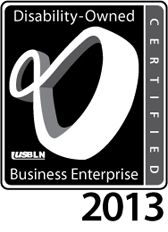Guidelines for Identifying, Managing, and Preventing Brain Injury in Elderly Persons
Diagnosis
- If a person has experienced a fall, followed by distinct behavioral or cognitive changes, you should suspect a traumatic brain injury. Often people do not realize that they have hit their head: mild traumatic injury can have subtle symptoms.
- Do not assume that a person has been evaluated for a brain injury simply because they have been hospitalized after a fall or an accident. Hospitals focus on immediate and obvious issues; they do not know the person’s typical behaviors, and may assume that the cognitive and behavioral issues presenting are pre-existing.
- Proper diagnosis should be done by an individual familiar with brain injury, particularly in the elderly. Seek a medical facility with a brain injury rehabilitation program, or find a brain injury resource group.
- Symptoms of brain injury include; difficulty with sequenced tasks (e.g. making coffee in a coffee maker), poor short-term memory, light or sound sensitivity (or both), bouts of rage out or proportion with any incident, difficulty tracking conversations, forgetting what they are saying mid-sentence, extreme fatigue, loss of motivation, depressive symptoms, balance issues, difficulty reading or loss of interest in reading.
Advocacy
- Provide an advocate for the person when they are receiving medical care because medical schools do not regularly train physicians to recognize brain injury.
- Rebuilding and recovery after a brain injury takes a long time and requires patience. Follow medical guidelines. Initially a person may need a great deal of rest and quiet. Gradually they can be encouraged to socialize and to resume certain activities.
Quality of Life
- Even with lasting issues a person with a brain injury can have an excellent quality of life, and in some cases live independently. Socializing and pleasurable activities (such as games, cards, book clubs, and volunteer work) are vital.
- Family members may need guidance when it comes to managing mood and behavioral changes. Brain injury can cause stress to the family unit and it is advisable to seek professional help to address this situation.
- Be careful with medications; discuss with physicians the use of medications and their impact on cognition. A mild brain injury combined with a medication that impairs cognition can produce major symptoms.
- When caring for the elderly, prevention is the most important action you can take; remove rugs that are not firmly secured, ensure that the person has shoes that protect his or her feet and provide good traction. Make sure lighting is adequate for the persom to see clearly when walking or performing a task. Train a person to improve balance by walking barefoot on different tactile surfaces. Install bars and guiderails BEFORE they are needed. Discourage the person from running to answer the telephone or the door.
To learn more about Cognitive Compass and the services that we provide please visit us at:
CognitiveCompass.com

